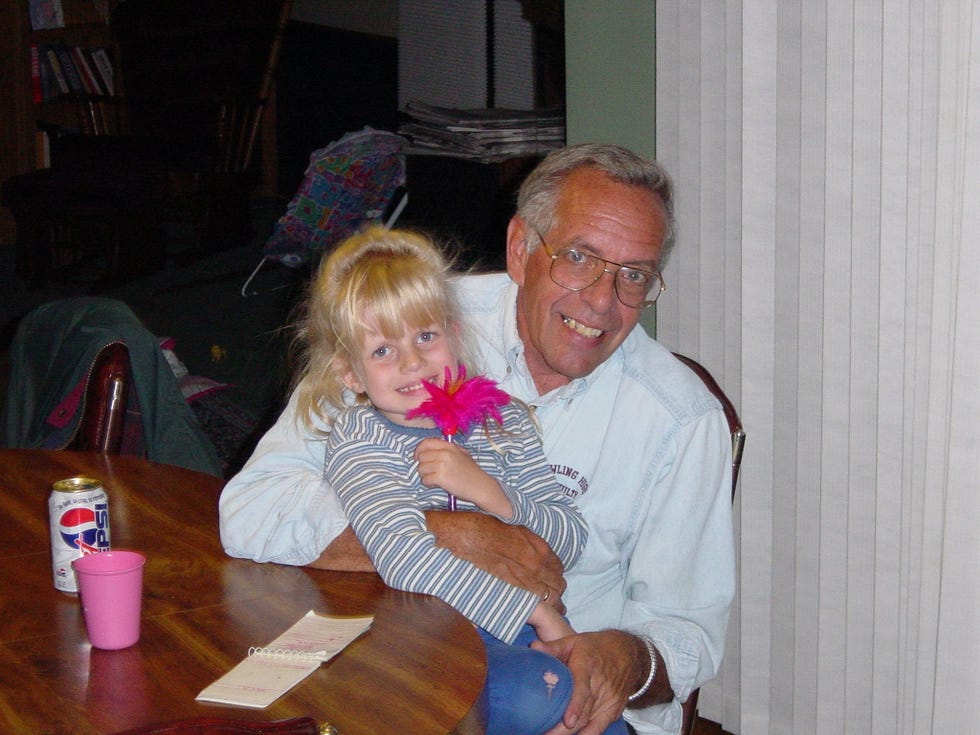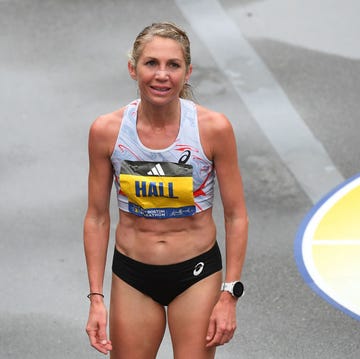Karissa Schweizer has been dominant during the last two years of her career at the University of Missouri, winning five NCAA titles—one in cross country, three in indoor track, and one outdoor. If she has her way, she’ll add two more this weekend.
Each time she wins, her grandfather, Frank Schweizer, 79, who has been in attendance at those five victories, ends up in tears. Happy tears.
Schweizer, 21, will race the 10,000 meters on Thursday, June 7, and the 5,000 meters on Saturday, June 9. That’s 37 and a half laps of the oval between the two events. “It will be a lot of turning left,” she said.
And it could also mean lots of waterworks in the grandstand at Hayward Field in Eugene, Oregon, where Schweizer will have 15 friends and family members in support—her parents, Mike and Kathy (both ran in college), her younger brother and sister (also talented runners), and cousins, aunts, and uncles. And of course, her paternal grandparents, Linda and Frank, who wouldn’t miss it.
“I always cry. I’m crying now, talking about her,” Frank Schweizer said in a phone call with Runner’s World.
Schweizer and her grandfather have a special bond. He was a college runner and coached high school track for 42 years. He was the one who took her to her first track practice near their home in Urbandale, Iowa, when she was in fifth grade.
At the end of the practice, the coach lined up all the kids, fifth- through eighth-graders, boys and girls, for a trial 800. Schweizer, who can’t have weighed more than 75 pounds at the time, was instructed to line up a few rows back, behind the bigger kids.
Frank Schweizer remembers watching her elbow her way to the front by the end of the first turn. By the time the race was over, she had soundly beaten everyone, including the boys. On the car ride home he told her, “I’ve got a hunch you’re going to win a lot of races.”
As she progressed, he’d sometimes drive alongside her as she went on training runs through town. And as she tried to cope with her nerves before races, she didn’t turn to her parents. Instead, she made a habit of calling Grandpa Frank. The habit stuck.
“I still call him before every race,” Schweizer said. “Sometimes it’s a short call, kind of a reassurance and a comforting thing. If I’m nervous, I’ll ask him, ‘How do you think I’m going to do? What time do you think I’m going to run?’ He always had so much confidence in me.”
Before an indoor mile earlier this year in New York, she was nervous again. She called, asking for his predictions. “I think you’ll run 4:29 high,” he told her. Her time: 4:27.54. “I beat his expectations by a lot,” she said. “He was pretty happy and shocked.”
It’s the usual result her family and coaches see when she takes the track. The mild-mannered Midwesterner, a little quiet on the outside, is fierce when a race starts.
“Even though she’ll never pass up an opportunity to say ‘hi’ to fans or kids, and she goes out of her way to talk to everyone who wants to take a picture with her, she is kind of shy,” said Marc Burns, who coaches the distance runners at Missouri. “She doesn’t have a crazy, outgoing personality. But man, when you get her in a competitive environment, she will tear your heart out if she gets a chance to. She is as feisty as they come on the track.”
Schweizer has proven she can win any way her coach asks her to: going hard from the gun, squeezing the pace faster lap by lap, or sitting and kicking.
The 10,000/5,000 double is a tall order for anyone, however. Although many runners compete in both events, winning both in the same year is a rarity. Edward Cheserek was the last collegiate athlete to do it, in 2016.
In preparation, Burns had Schweizer running 70–80 miles per week and doing longer tempo runs (which she hates), as many as 8 miles at 5:40 pace along the MKT trail in Columbia, Missouri. Every couple of weeks he’d have her do her interval sessions with only one easy day between, instead of their usual two, in order to mimic the schedule she’ll face at nationals.
The 10,000 meters is a recent addition to her résumé—she’s only raced the event twice. Nonetheless, the 32:00.55 she ran on March 30 is the fastest time in the collegiate ranks this year. In the 5,000, she also has the fastest time (15:19.65), but four other runners are within five seconds of her.
Burns concedes it’s a tough double. Grandpa Frank, however, has no doubts this time. “I would bet as much money as you could afford, in both races,” he said.
Running in the Cold.

Published: Jun 07, 2018 8:46 AM EDT is a writer and editor living in Eugene, Oregon, and her stories about the sport, its trends, and fascinating individuals have appeared in Runner’s World Olympian Elle St. Pierre Is Expecting Second Child, Run Your Butt Off! and Walk Your Butt Off!















